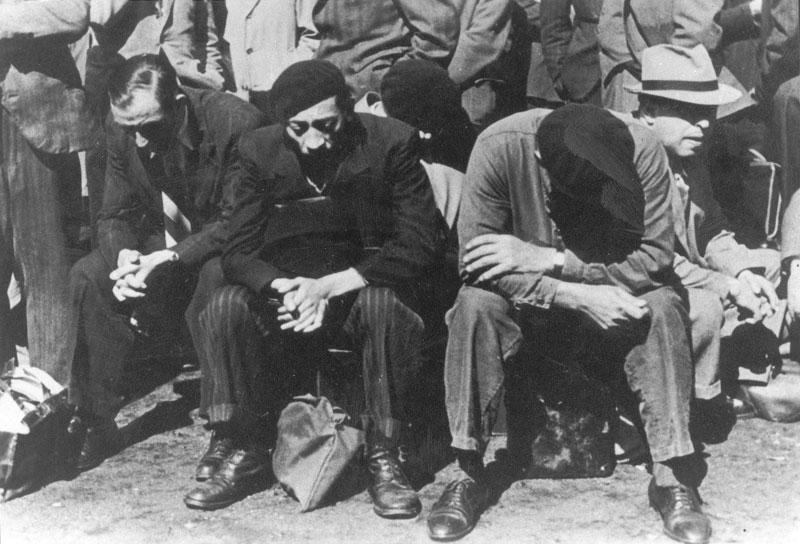
Yad Vashem Photo Archives 4520/451
Courtesy Bundesarchiv

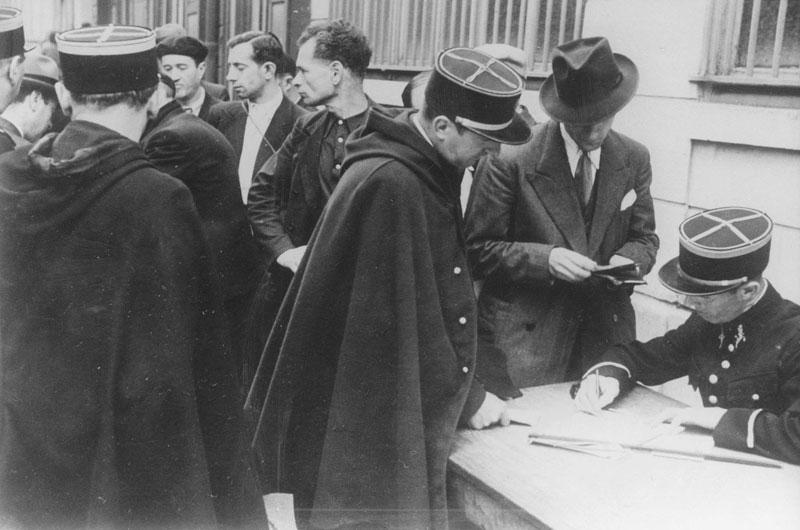
Yad Vashem Photo Archives 4520/92
Courtesy Bundesarchiv

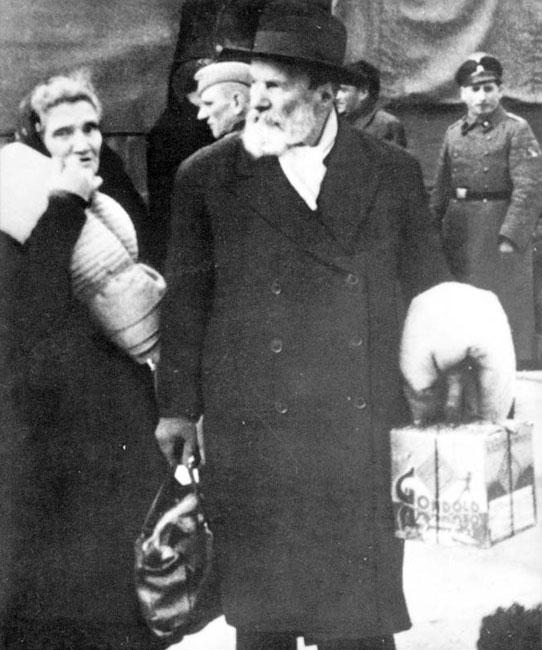
Yad Vashem Photo Archives 92FO5

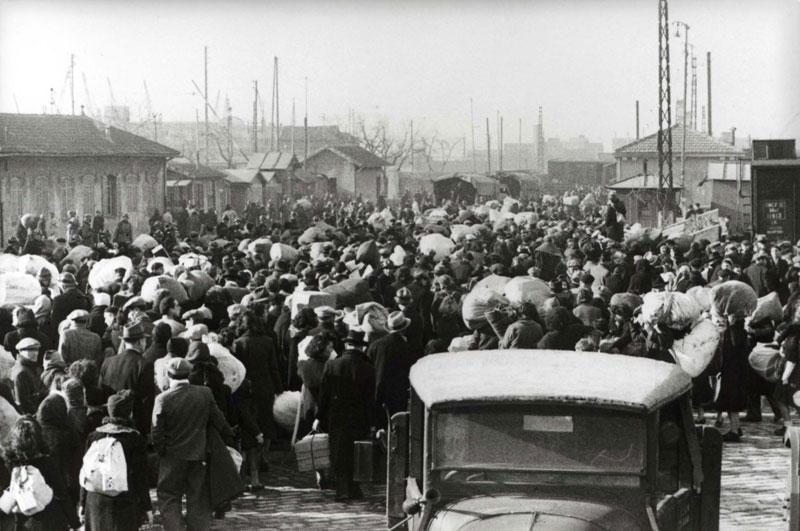
French policemen leading Jews and non-Jews to the Gare d`Arenc train station in Marseilles. 1,642 of those arrested, among them 780 Jews from Marseilles, were deported to the concentration camp of Compiègne, not far from Paris.
Yad Vashem Photo Archives 7261/380
Courtesy Bundesarchiv

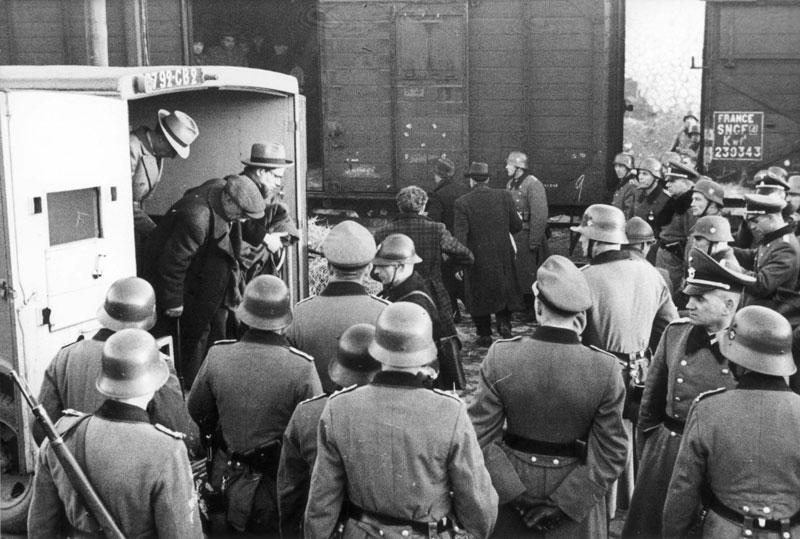
Working together, the German and French police arrested Jews and assembled them at the train station, in preparation for their deportation. In this wave entire families were deported. No distinction was made between foreign Jews, Jews who had recently received French citizenship, and Jews who had lived in France for generations. Women taken to the police trucks were not given time to dress. Patients were ousted from their beds, elderly people were forcibly marched down the streets, and children were separated from their parents.
Yad Vashem Photo Archives 7261/403
Courtesy Bundesarchiv

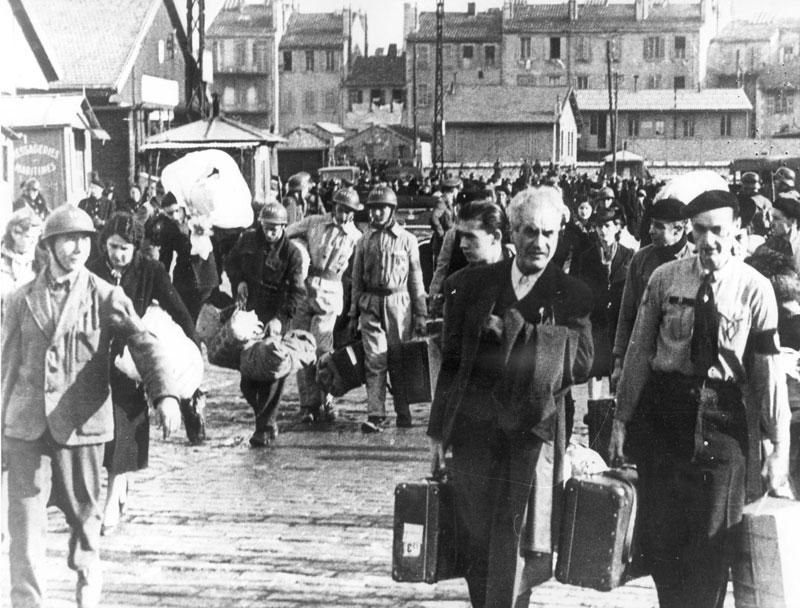
Working together, the German and French police arrested Jews and assembled them at the train station, in preparation for their deportation. In this wave entire families were deported. No distinction was made between foreign Jews, Jews who had recently received French citizenship, and Jews who had lived in France for generations. Women taken to the police trucks were not given time to dress. Patients were ousted from their beds, elderly people were forcibly marched down the streets, and children were separated from their parents.
Yad Vashem Photo Archives 7261/403
Courtesy Bundesarchiv

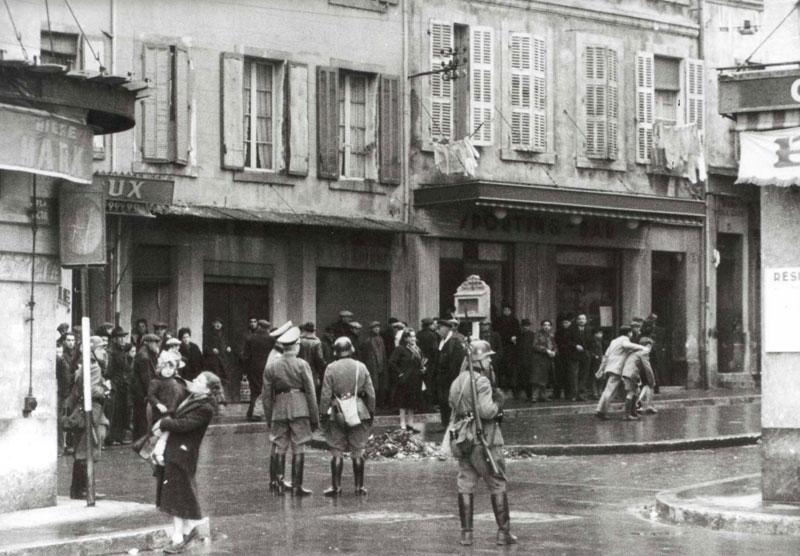
Yad Vashem Photo Archives 7261/368
Courtesy Bundesarchiv

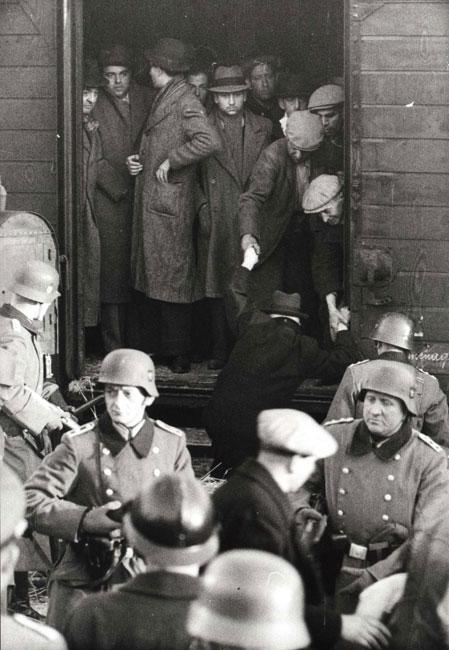
Working together, the German and French police arrested Jews and assembled them at the train station, in preparation for their deportation. In this wave entire families were deported. No distinction was made between foreign Jews, Jews who had recently received French citizenship, and Jews who had lived in France for generations. Women taken to the police trucks were not given time to dress. Patients were ousted from their beds, elderly people were forcibly marched down the streets, and children were separated from their parents. At the center: Edward Kriff, an Algerian-born Jewish opera singer, arrested by the French police on the 23rd of January, 1943. Kriff succeeded in jumping off the deportation train and survived.
Yad Vashem Photo Archives 7261/372

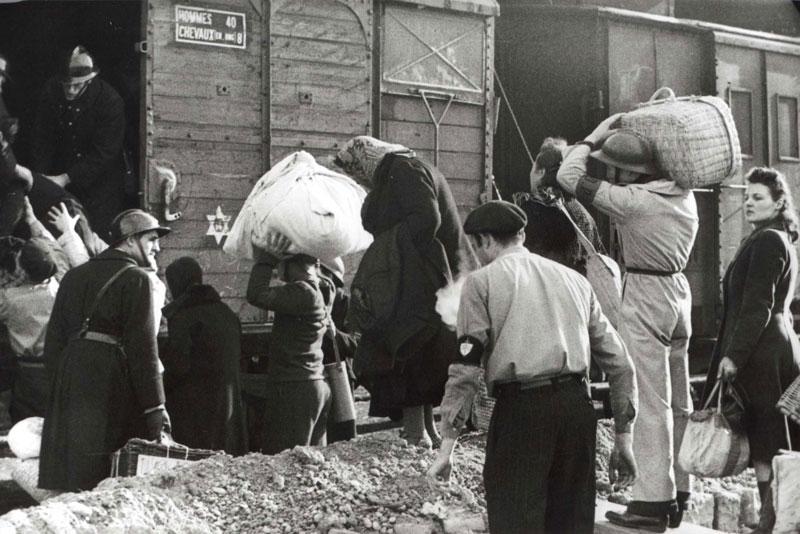
Yad Vashem Photo Archives 7261/384
Courtesy Bundesarchiv

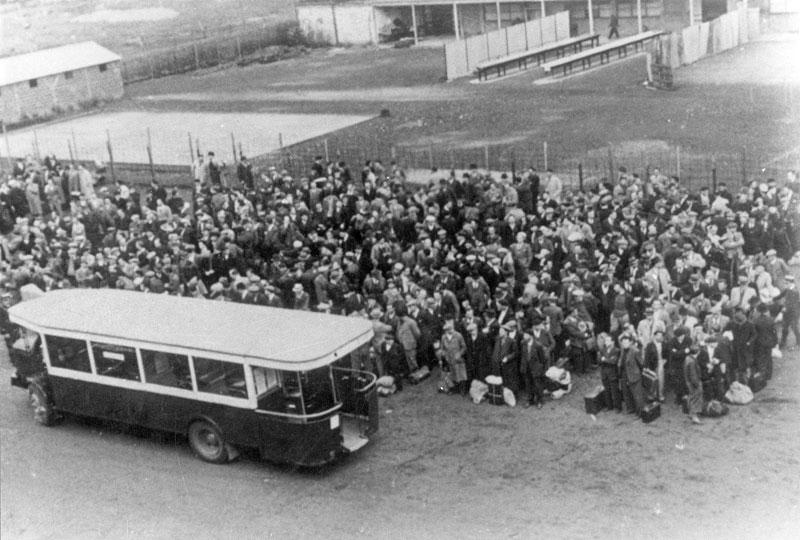
Yad Vashem Photo Archives 4520/450
Courtesy Bundesarchiv


Denise Tal was born in a suburb of Paris. With the Germans approaching, her mother collected her three children, and together they traveled to Denise's father, who at the time was serving as an officer on reserve duty in an artillery unit south of Paris. After some time wandering, the family decided to split up so as to increase their chances of survival. Denise was hidden with the Seve family; her friend's family who were Catholic and had a large family – 10 children and 31 grandchildren. After some time she began working as an au pair for Christian families, and performing deliveries for the French Resistance. In May, 1945, Denise returned to Paris, where she was reunited with her parents.
Yad Vashem Artifacts Collection
Gift of Denise Tal


Emanuel Recine was a member of the Amicale Combat ("Fighting Friends") in Marseille, and participated in the distribution of the Combat newsletter. In addition, he served as a liaison for the Resistance, working all across France, and was active in smuggling groups of people into Spain. He worked with the first "Maquis" group (rural bands of the French Resistance) founded in the Lower Alps (the Basses Alpes, or the Alpes-de-Haute-Provence). After the widespread arrests of May 1943, Recine left Marseille, and moved to the greater Lyon region (Lyon-Haute-Savoie), where he ran the assistance department for the French Resistance organization M.U.R. (Mouvements unis de la Résistance) in Lyon. This organization worked to save Jewish children and people persecuted by the Gestapo by smuggling them across the border into Switzerland. Emanuel Racine was the brother of Mila Racine, a member of the "Jewish Army", who was caught by the authorities and sent to concentration camps in Germany, and later to Mauthausen. Gurs concentration camp near the French-Spanish border shortly before liberation, in an Allied bombing of the camp.
Yad Vashem Artifacts Collection
Gift of Emanuel Recine, Tel Aviv, Israel

The Jews in France were deported to the East at the height of a two year process of persecution and aggressive legislation. The laws passed included statutes defining who was to be considered a Jew, isolating Jews from French society, divesting them of their livelihood, incarcerating many of them, and registering their names with the police.
From winter 1940-1941 French Jews began to be imprisoned in concentration camps. Thousands of Jews were imprisoned in camps in the vicinity of Paris and Southwestern France. In May 1941 many more thousands of Jews were arrested.
In March 1942 some 1,000 Jews were arrested and sent to the Compiègne detention camp, from where they were deported to Auschwitz. The transports took two days to arrive at their destination. Most of those who were still alive at the end of the jouney were murdered.
In July 1942 some 23,000 Jews were arrested in Paris and in the remainder of the Occupied Zone. At the initiative of Pierre Laval, the Prime Minister of the Vichy regime, most of the Jewish children were deported to the East together with their parents. The arrests and deportations were conducted in a very violent manner, often enforcing the separation of couples, parents and children, and brothers and sisters. “A cruel destruction of Jewish families,” wrote the Parisian Jewish reporter, Jacques Bielinky. In August 1942 the arrest of thousands of additional Jews began in the territories of the Vichy regime. The arrested Jews were imprisoned in concentration camps and deported to their destruction in the East. “The deportations are creating tremendous pressures in the concentration camps and wreaking havoc within the Jewish families,” wrote Bielinky on the 18th of August 1942. “To date,” he continues, “nothing is known about the fate of those who have been deported.”
In September, Paris policemen arrested some 1,000 Jewish immigrants from Romania, and sent them to the concentration camp of Drancy. Almost all of them were murdered in the extermination camps in the East within three days of their arrest. In November another wave of mass-arrests was carried out in Paris. More than a thousand Jews of Greek origin were arrested and deported to the East.
The Jews reacted to the deportations by ceasing to cooperate with the German and French authorities, and the Jewish aid organizations which they had founded. Many Jews went into hiding in some 6,000 villages and small towns across France. The German and French authorities responded by organizing raids in rural areas, including the territories of the Vichy regime.
Activists in the Jewish aid organization “Amelot” sent packages to the arrested Jews, helped maintain contact with the deportees, and procured permits which helped Jews escape deportation. Furthermore, they saved Jews from deportation by hiding children and distributing forged documents. The UGIF (l'Union Generale des Israelites de France), a forced representative organization for French Jews set up by the French and German authorities, succeeded in saving more than 1,400 Jewish children with French citizenship from deportation. Their parents, however, were deported.
Jewish organizations helped the children by providing social welfare, opening shelters and sending the children to the villages. Jews joined the Jewish Resistance in France, as well as the French Resistance. A few Jews tried to escape the deportations by converting to Catholicism. Thousands of Frenchmen tried to help the Jews hiden from the deportations. Many of them paid for this with their lives. “Let us thank those who threaten us,” reads an editorial in a French Socialist newspaper, “for it is thanks to them that we must think dangerously, and thereby restore our own dignity.” Since 1962 a total of 3,925 French men and women have been recognized by Yad Vashem as Righteous Among The Nations (as of January 2016).
A total of some 76,000 Jews from France, most of them from Paris, among them 11,000 children, were deported by train to the East. Most of the deportees were murdered in Auschwitz. Most of the deportations left France from the concentration camp of Drancy. The deportations continued even as the Allies had begun to liberate France. The last transport left France in August 1944, while the battle for Paris was being fought. Of all the Jews deported from France to the extermination camps in the East, a total of some 2,500 survived.








